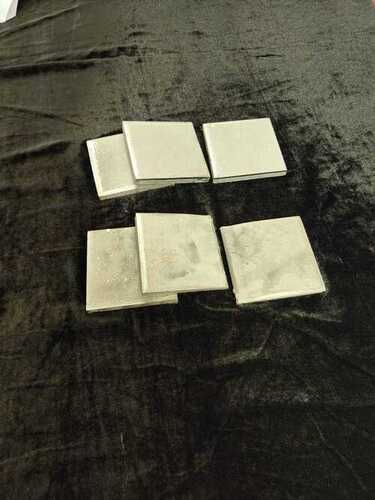Call us now : 07971584680
JAPAN Nickel Plate
1390 INR/Kilograms
Product Details:
- Purity 99.97%
- Product Type Metal
- Shape Sheet
- Application Casting
- Dimension (L*W*H) 4*4*4*4 Inch (in)
- Click to View more
X
JAPAN Nickel Plate Price And Quantity
- 10 Kilograms
- 1300.00 - 1420.00 INR/Kilograms
- 1390 INR/Kilograms
JAPAN Nickel Plate Product Specifications
- 99.97%
- Sheet
- Casting
- 4*4*4*4 Inch (in)
- Metal
JAPAN Nickel Plate Trade Information
- JNPT
- Paypal Cash on Delivery (COD) Cash in Advance (CID) Western Union Letter of Credit (L/C)
- 150000 Kilograms Per Week
- 1 Days
- Yes
- Sample costs shipping and taxes has to be paid by the buyer
- Asia Australia Central America North America South America Eastern Europe Western Europe Middle East Africa
- All India South India Central India West India North India East India Gujarat Karnataka Kerala Lakshadweep Mizoram Meghalaya Manipur Andhra Pradesh Bihar Chandigarh Daman and Diu Goa Jharkhand Odisha Punjab Assam Delhi Dadra and Nagar Haveli Andaman and Nicobar Islands Arunachal Pradesh Chhattisgarh Haryana Himachal Pradesh Jammu and Kashmir Madhya Pradesh Maharashtra Nagaland Rajasthan Sikkim Tamil Nadu Telangana Tripura Pondicherry Uttar Pradesh Uttarakhand West Bengal
Product Description
Russian Nickel, often referred to as "Russian Nickel" in the industry, is a high-purity nickel product primarily sourced from Russia, one of the world's leading nickel producers. This nickel is known for its high quality and purity, making it a preferred choice in various industrial applications. Russian Nickel typically comes in the form of cathodes, briquettes, and rounds, and is used extensively in industries that require nickel for its corrosion resistance, strength, and versatility.
Key Characteristics:
High Purity: Russian Nickel is known for its exceptionally high purity, often reaching 99.8% or higher. This makes it ideal for applications that require premium-grade nickel.
Corrosion Resistance: Nickel's natural resistance to corrosion makes it a valuable material in industries such as chemical processing, marine, and aerospace.
Versatility: Russian Nickel is used in a wide range of applications, from stainless steel production to superalloys, electroplating, and batteries.
Forms: Russian Nickel is available in various forms, including cathodes, briquettes, rounds, and sometimes in powder form, depending on the application requirements.
Global Demand: Due to its high quality, Russian Nickel is in demand globally, especially in markets that value purity and reliability in their nickel supply.
Common Applications:
Stainless Steel Production: A significant portion of Russian Nickel is used in the production of stainless steel, which benefits from nickel's ability to enhance strength and corrosion resistance.
Electroplating: Nickel's durability and resistance to tarnish make it an ideal material for electroplating.
Battery Manufacturing: Russian Nickel is also used in the production of batteries, including those for electric vehicles and electronics.
Superalloys: In industries such as aerospace and power generation, superalloys made with Russian Nickel provide the strength and heat resistance needed for high-performance applications.
FAQs
Q1: What is the purity level of Russian Nickel?
A: Russian Nickel typically has a purity level of 99.8% or higher, making it one of the purest forms of nickel available on the market.
Q2: In what forms is Russian Nickel available?
A: Russian Nickel is available in several forms, including cathodes, briquettes, rounds, and sometimes powder, depending on the application.
Q3: What industries primarily use Russian Nickel?
A: Russian Nickel is widely used in industries such as stainless steel production, electroplating, battery manufacturing, and in the creation of superalloys for aerospace and power generation.
Q4: Why is Russian Nickel preferred in stainless steel production?
A: Russian Nickel's high purity enhances the corrosion resistance, strength, and durability of stainless steel, making it a preferred choice for producing high-quality stainless steel products.
Q5: How is Russian Nickel sourced?
A: Russian Nickel is mined and processed primarily in Russia, a country known for its large nickel reserves and advanced refining techniques.
Q6: Is Russian Nickel environmentally friendly?
A: The environmental impact of Russian Nickel depends on the mining and processing methods used. Nickel mining can have significant environmental impacts, but efforts are being made globally to reduce these through more sustainable practices.
Q7: How should Russian Nickel be stored?
A: Russian Nickel should be stored in a dry, cool place to prevent oxidation and contamination. It™s typically stored in its original packaging until ready for use.
Q8: What is the price trend for Russian Nickel?
A: The price of Russian Nickel can fluctuate based on global demand, supply chain dynamics, and geopolitical factors. It™s advisable to monitor market reports for the latest pricing information.
Q9: Can Russian Nickel be recycled?
A: Yes, nickel is highly recyclable. Russian Nickel can be melted down and reused in various applications, making it a sustainable material choice.
Q10: Are there any specific regulations for importing Russian Nickel?
A: Importing Russian Nickel may be subject to international trade regulations, including tariffs and sanctions, depending on the political and economic relations between Russia and the importing country. Always check the latest regulations before importing
Enter Buying Requirement Details

 English
English Spanish
Spanish French
French German
German Italian
Italian Chinese (Simplified)
Chinese (Simplified) Japanese
Japanese Korean
Korean Arabic
Arabic Portuguese
Portuguese



 Send Inquiry
Send Inquiry Send SMS
Send SMS Call Me Free
Call Me Free